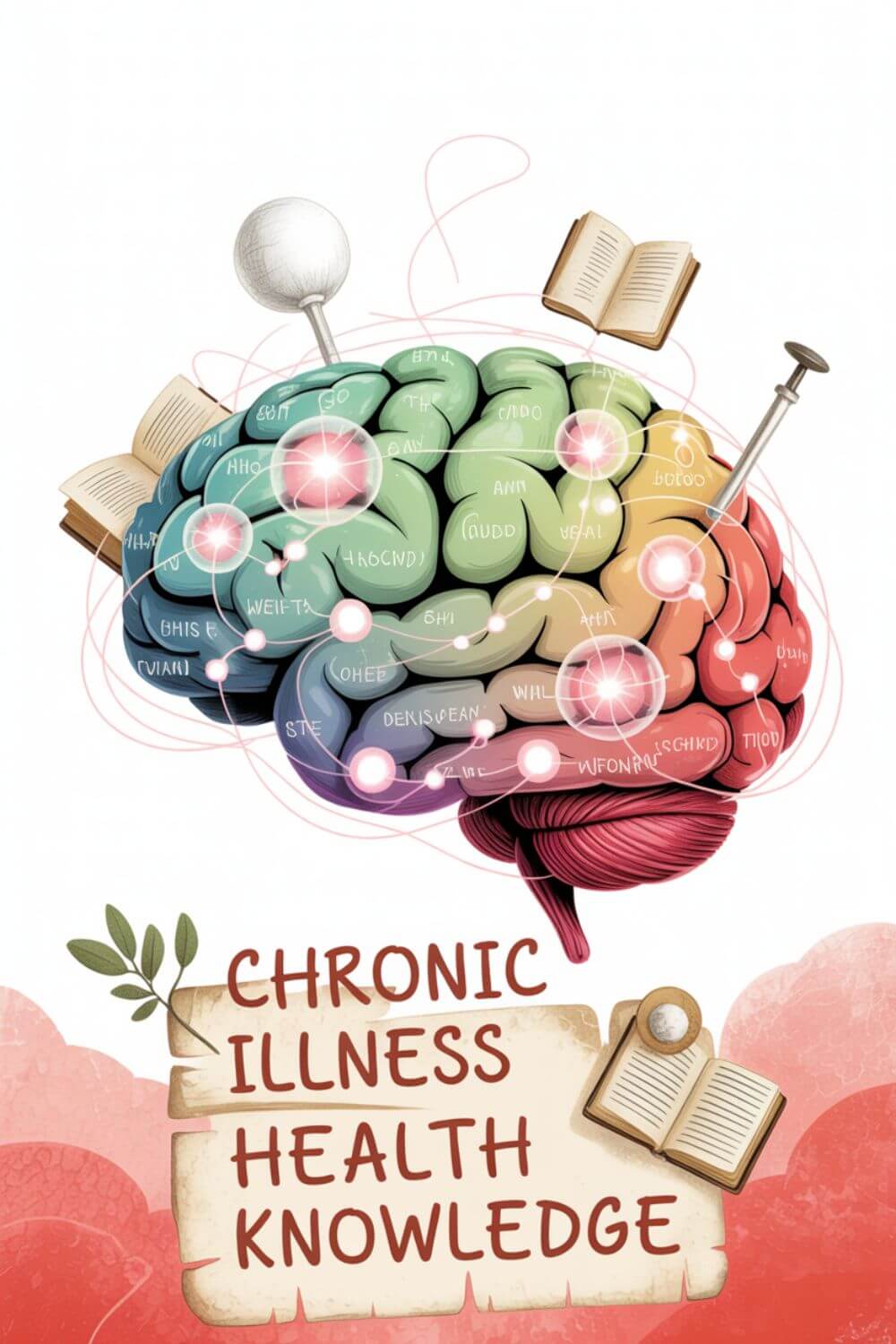Chronic Health Knowledge for Loved Ones
Have you ever felt completely helpless watching someone you love suffer and not knowing how to truly help them? What does understanding chronic health knowledge for loved ones feel like, trying to read a language no one ever taught you?
Chronic health knowledge for loved ones isn’t just about learning medical terms; it’s about learning how to stay, how to care, how to show up when the person you love is falling apart and needs you more than ever.
When my wife was first diagnosed with endometriosis and later fibromyalgia, I wasn’t prepared. No one trains you for this. I had no roadmap for navigating her pain, her anxiety, the panic attacks that came out of nowhere, or the days she couldn’t get out of bed. But over time, I learned—through tears, through setbacks, through love. And that learning changed our life.
If someone you care about is battling chronic illness, this might be the most important thing you’ll ever read—because what you’ll discover here can shift the way you love them, live with them, and support them for the rest of your life.
- What Chronic Health Knowledge for Loved Ones Means?
- How Health Knowledge Helps Us Understand Mental Health?
- How Blogging Became My Anchor and Our Way Forward?
- Why Chronic Health Knowledge Changes Everything?
- Health Knowledge for Loved Ones Looks Like in Real Life
- The Grief No One Talks About
- Carrying Her Pain in My Body
- When You're the Only One Who Sees It All
- Fight Resentment with Radical Compassion
- Choose Love Every Single Day
- Create a Home That Heals, Not Just Shelters
- Turn Pain Into Purpose Through Blogging
- Create a Financial Safety Net Without Burnout
- Build a Routine Around Real Life (Not Instagram)
- Say “No” to Guilt and “Yes” to Joy
- Travel Together Again Without Fear
- Final Word on Chronic Health Knowledge for Loved Ones
What Chronic Health Knowledge for Loved Ones Means?
Understanding chronic health knowledge for loved ones isn’t something you can Google once and be done with. It’s not a checklist. It’s a lifelong commitment to learning, adapting, and loving someone through a reality that’s constantly shifting.
When my wife’s pain flares up, it doesn’t announce itself politely. It crashes through the day. Plans get canceled. Smiles fade. Hope sometimes dims. I used to feel like I was failing her because I couldn’t fix it. But I learned that knowledge isn’t about fixing, but it’s about being fully present in the mess, holding space, and learning how her world works from the inside.
This kind of knowledge begins with listening. Deep, intentional listening. Not just to her words, but to the silences between them. To the sighs. The sudden mood shifts. The days when she doesn’t speak much because she’s too exhausted from the pain or the depression or the weight of pretending to be “okay.”
And then there’s the mental toll. Chronic illness doesn’t just affect the body; it erodes confidence, identity, and peace of mind.
I watched the vibrant woman I married wrestle with feelings of being “too much,” of guilt for being “a burden.” That crushed me. But it also woke me up. Because my role wasn’t just to love her.
It was to understand what she was fighting, even when she couldn’t explain it herself.
So I studied. I read everything I could on endometriosis and fibromyalgia. I joined forums silently just to learn how other partners cope. I learned about chronic illness and anxiety, about trauma stored in the body, and how chronic fatigue isn’t “just being tired.” I built this knowledge brick by brick, because each piece made me more helpful, more stable, more of what she needed.
And that knowledge shaped how I designed our life. From small things, like keeping the house quiet when she’s overstimulated, to big decisions like building a work-from-home life so she never has to drag herself into an office during a flare-up again. I couldn’t take away her pain. But I could soften the world around her.
Chronic health knowledge, for me, became a form of love. Not romantic words, not grand gestures, but love that cooks, cleans, learns medical jargon, drives to appointments, gives space, notices triggers, and doesn’t take “I’m fine” at face value.
It means accepting that the version of her I love most might be hidden under layers of pain some days, and still loving her just as much. Maybe more.
Because showing up for someone with a chronic illness is hard. But being the one enduring it every single day? That’s a strength I’ll never stop honoring. And I want to understand it with every part of me.
And so I keep learning. Because she’s worth it. And so are you, and the one you love.
Let’s keep going, because the next part will ask the question that most of us supporting someone with chronic illness struggle with, but rarely say out loud…

How Health Knowledge Helps Us Understand Mental Health?
The truth is, most people have no idea how deeply chronic illness breaks a person, not just their body, but their mind, their sense of self, their will to keep going. And unless you’ve lived beside it, day after day, chronic health knowledge for loved ones can feel vague or theoretical. But when you’re the one holding her trembling body at 2 a.m. because she doesn’t want to exist anymore… it stops being theory.
You see, my wife didn’t just suffer from endometriosis and fibromyalgia. Over time, her body’s pain turned into emotional agony. She was once so bright, so full of dreams, but the constant fatigue, the hormonal chaos, the shame of having to cancel again and again, it slowly chipped away at her spirit.
There were days she looked in the mirror and didn’t see a woman worth loving.
There were nights she told me, eyes swollen from crying, “You should leave me. You deserve a real life.”
It wasn’t a test. She meant it. And not just once. Multiple times, over the years. That’s the mental health side people don’t talk about when they throw around phrases like “chronic pain” and “invisible illness.” Because what’s invisible to the world isn’t just her pain. It’s her suffering.
She cut herself. Quietly. Secretly. I only found out because she was honest with me, trusting me to hold that unbearable truth. And I did. With shaking hands, I held her tighter.
Twice, she tried to take her own life. Once with pills. Another time, in a way I can barely talk about even now. I still have flashbacks. I still remember how empty the house felt when she wasn’t in it, even for an hour.
But I stayed. I didn’t run. I learned everything I could, not just about her conditions, but about how chronic illness affects mental health, how it fuels depression, how trauma loops feed into pain, and how important it is not to just offer love, but to offer understanding.
So I started learning how to really listen. To see when she was slipping. To learn the patterns. To catch her in the fall before she hit rock bottom.
And that’s when chronic health knowledge for loved ones became more than a goal. It became a responsibility. A way to protect her. Not by rescuing her or pretending I could fix it, but by showing her I’m here. Fully. Without fear. Without conditions.
When she told me to divorce her, it was never because she stopped loving me. It was because she thought I’d be happier with someone “normal.” Someone who could work full-time, travel without fear of flares, make plans, and stick to them.
But what she didn’t know was that she is my home. And leaving her would be like walking away from my own heart.
Mental health is a war zone for so many people living with chronic illness. And unless the person beside them learns how to navigate that terrain – with patience, empathy, and unshakeable love – they walk it alone.
I chose not to let her walk it alone. And I want to help others make that same choice, not out of obligation, but out of the kind of love that fights, learns, and never lets go.
Let’s break down exactly how chronic health conditions tie into mental health struggles—and what you, as a loved one, need to understand so you can be a steady, healing presence in the storm.
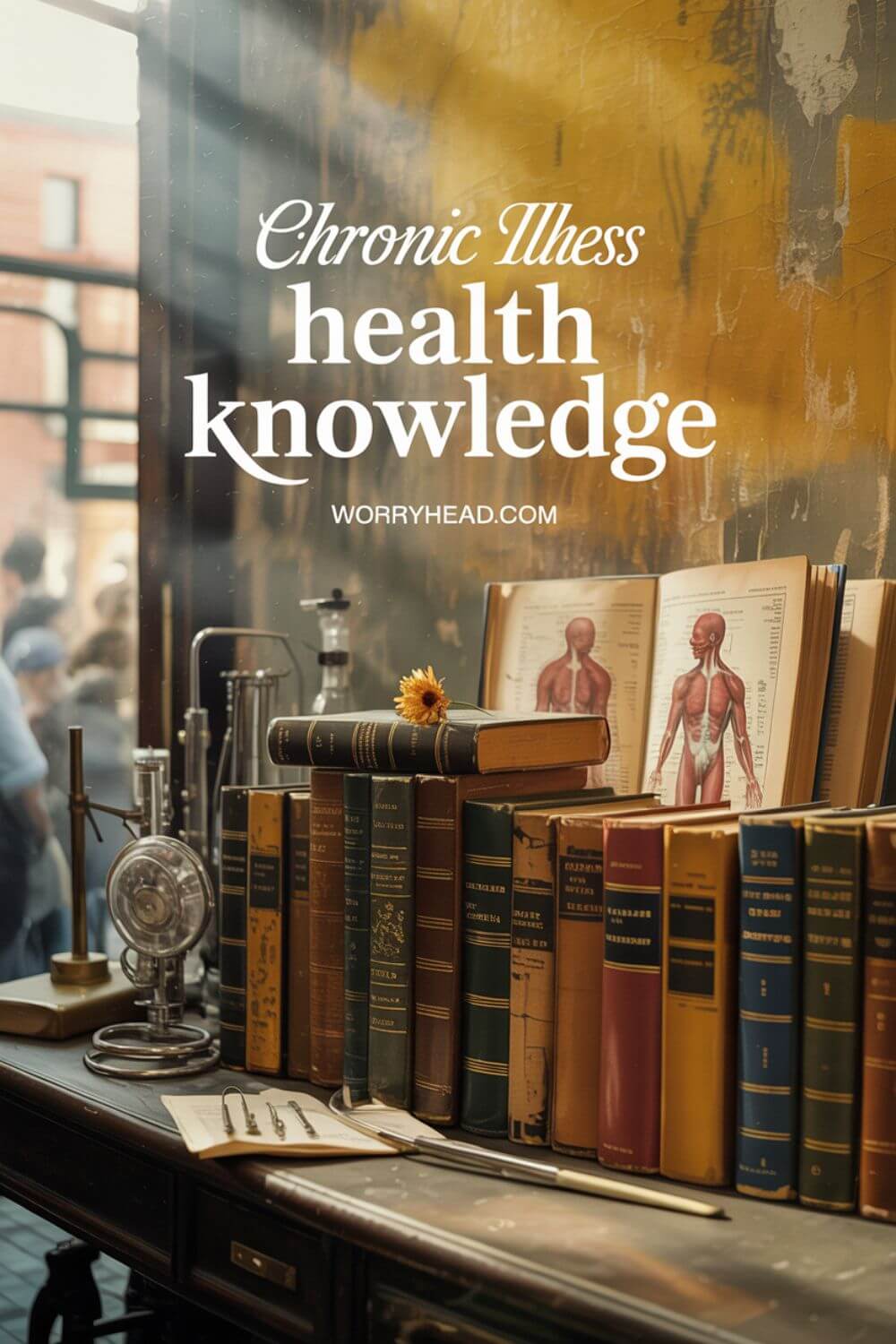
Chronic Illness and Depression
Depression doesn’t always show up in tears. Sometimes, it looks like silence. Like lying in bed for hours, staring at the wall because there’s no energy left to care. Like forgetting to eat or shower. Like not replying to messages because the weight of pretending everything is fine is just too much.
When my wife’s physical pain became her emotional prison, I realized quickly how deeply chronic illness and depression intertwine. No one warned me that chronic illness slowly steals the little things that make life feel normal: your job, your hobbies, your friendships, your identity. And when it does, what’s left behind is often an overwhelming void.
I used to think I could cheer her up. That a nice dinner or a surprise trip would be enough. But depression isn’t sadness, it’s numbness. It’s detachment. I had to learn to just sit with her in that space. No pressure. No expectations. Just presence.
And over time, she started opening up again, not because she was “cured,” but because she finally felt safe. Because she saw I wasn’t going anywhere.
Anxiety Feeds the Fire of Chronic Pain
Anxiety, when coupled with chronic illness, becomes a silent predator. It makes every doctor’s appointment feel like a death sentence. It turns a simple stomach ache into spiraling thoughts of new diagnoses. It takes small symptoms and amplifies them, until fear becomes as painful as the condition itself.
My wife’s anxiety would often peak after a bad flare-up. The pain wasn’t just physical; it triggered waves of panic. She’d question whether this was the beginning of something worse. Whether she’d ever feel safe again in her own body.
I learned to recognize the signs: shallow breathing, trembling hands, sudden withdrawal. I had to teach myself how to ground her, not by saying “calm down,” but by being calm myself. By creating a space where her fear didn’t feel ridiculous, but valid.
Anxiety lives in the shadows. And chronic health knowledge for loved ones means learning how to bring gentle light to those dark places.
Self-Harm Is Silent Screaming
When my wife confessed she had hurt herself, my heart cracked in ways I can’t describe. She didn’t do it for attention. She didn’t want anyone to know. She just wanted to feel something other than the dull, hopeless ache of living in a broken body.
And the worst part? I missed the signs. I was so focused on managing her physical health that I didn’t realize how badly her mental health was spiraling.
I had to confront hard truths, not just about her, but about myself. I had to unlearn the instinct to fix, and instead learn to feel with her. To sit with her pain, no matter how unbearable it felt for me, because it was a hundred times heavier for her.
Now, every scar she carries is sacred. A reminder that she’s still here. Still fighting.
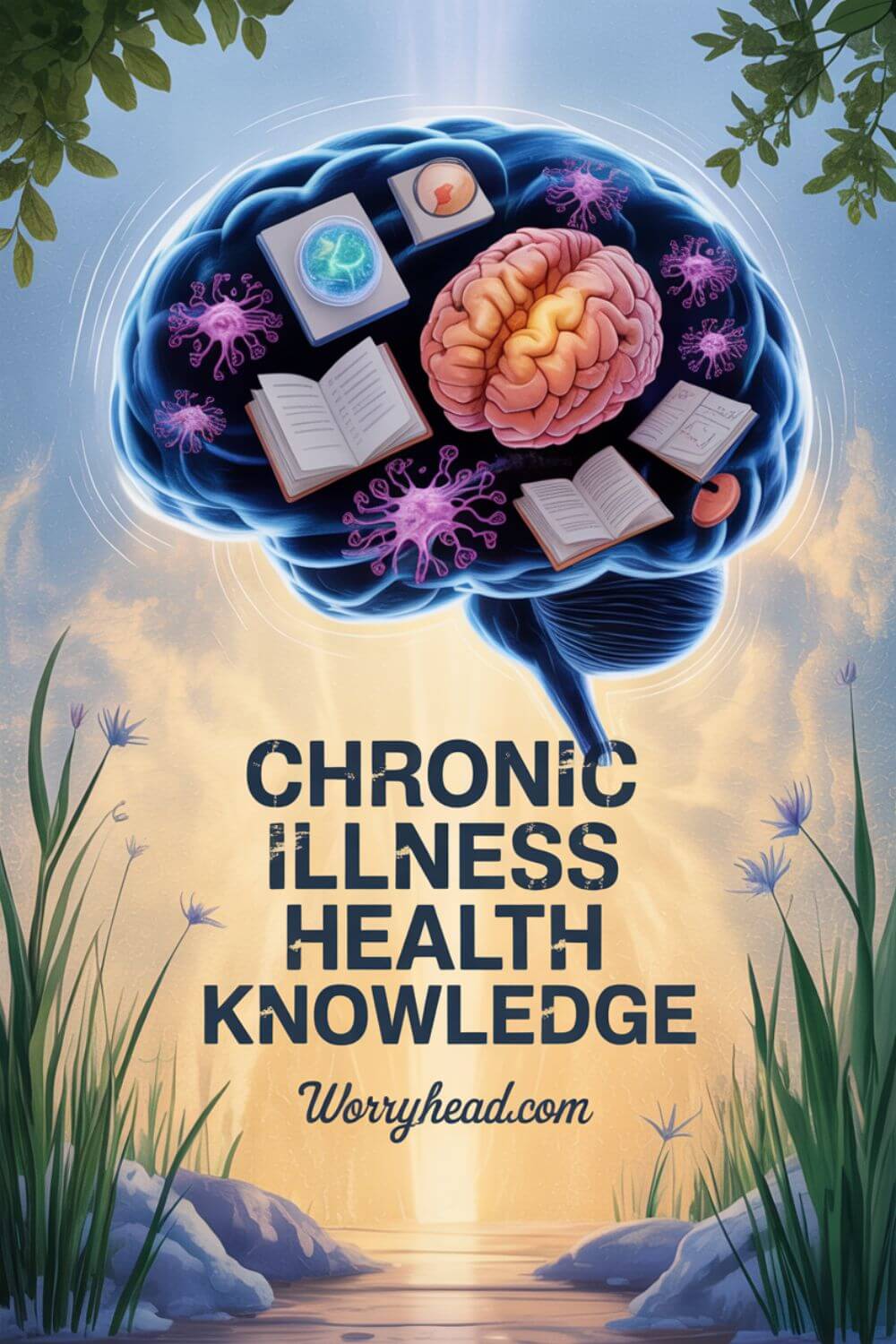
Guilt Destroys More Than Pain Does
Guilt might be one of the most corrosive parts of living with chronic illness. My wife would say things like, “I’m sorry you have to deal with this,” or “You should be with someone healthy.” And every time she did, I felt my heart ache in a new place.
She felt guilty for being in pain. Guilty for not being able to help financially. Guilty for ruining plans. For crying. For being alive.
No one should ever feel guilty for being sick.
And yet, this is one of the most common emotions people with chronic illness live with, especially when their condition impacts the people they love.
I had to show her, again and again, that her worth is not based on her ability to contribute. That her existence, her presence, her being, is enough.
The Danger of Isolation When She’s Chronically Ill
Chronic illness often leads to social withdrawal. Friends, stop calling, invitations stop coming, and the world becomes smaller and smaller until it’s just you, your partner, and the illness.
Isolation became a dangerous routine in our lives. There were weeks when she wouldn’t leave the house at all. Where every conversation was between just the two of us.
And while I love being her safe place, we both knew this wasn’t sustainable. We needed community. We needed support.
So, I sought it out, online support groups, therapy, even building my blog to help others in similar situations. Because when we isolate ourselves, we start to believe that no one else could possibly understand.
But we’re not alone. And that realization changed everything.
Counseling Isn’t a Weakness
Getting professional help was one of the most powerful decisions we ever made. At first, my wife was reluctant. She thought counseling wouldn’t help. That it was pointless.
But after everything we went through, the suicide attempts, the panic attacks, the endless days of silence, I gently encouraged her to try.
We both went. Together and separately. And through those sessions, we found language for the things we were too afraid to say out loud. We found tools to cope. We found hope.
Therapy isn’t a fix. But it’s a flashlight in the darkness. And for us, it was the beginning of healing, not from the illness itself, but from the emotional destruction it left in its wake.
Next, I want to share how I personally adjusted my mindset, my daily habits, and my purpose to better support my wife and myself in this journey, and how it all connects back to building a life that works around chronic illness instead of against it.
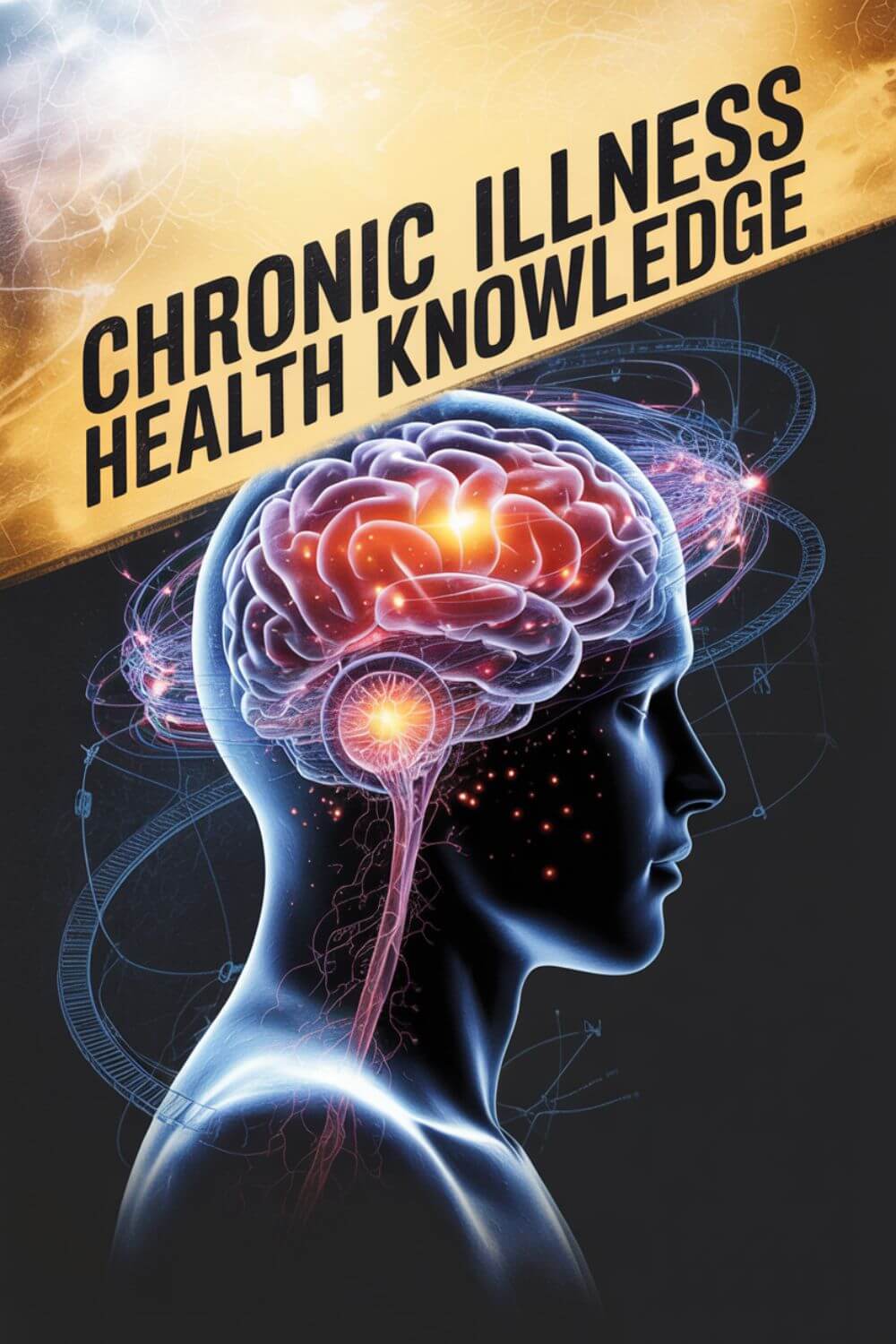
How Blogging Became My Anchor and Our Way Forward?
When my wife tried to end her life the first time, everything stopped.
I called in to work and said I wasn’t coming back, not for a while. I didn’t know if I’d ever go back, to be honest. The only thing that mattered was her. For two months, I sat with her, held her hand when she couldn’t speak, made sure she ate, listened when she whispered through tears that she hated herself, that she felt useless, broken, too much.
That time was brutal. But it was also sacred. It cracked us open and made space for something new to grow.
In those quiet, heavy days, I began to write.
At first, it was just for me. A kind of therapy. A way to release everything I was holding, the fear, the exhaustion, the loneliness of supporting someone with a chronic illness the world barely understands. I needed to feel like someone out there might get it. And surprisingly… people did.
Strangers messaged me. Women thanked me for putting words to what they were too afraid to say. Men opened up about their own pain as caregivers, partners, and sons. It felt like, for the first time, I wasn’t invisible in all this.
And then something clicked.
I realized that blogging wasn’t just a place to bleed onto the page. It could build something. It could become a bridge from where we were, stuck, scared, and barely surviving, to a life that felt like ours again.
So I studied. I read everything I could about SEO, content marketing, and monetization. Not because I wanted to become rich, but because I wanted my wife to stop feeling like she had to choose between pain and a paycheck. I wanted her to have the freedom to heal.
The more I built, the more I saw what was possible.
We no longer had to depend on rigid 9-to-5 jobs that made her cry every morning before work. We no longer had to explain, again and again, why she couldn’t come in, why she looked fine but couldn’t function. I created something that allowed her to rest without guilt.
And for me? Blogging gave me a purpose again.
When you’re the healthy one, it’s easy to feel selfish for wanting something of your own. But I needed that. I needed to build. To feel like I wasn’t just watching life happen, I was shaping it.
And blogging gave me that power.
It gave us better access to healthcare because we could afford it. It gave us financial stability. It reduced our stress and allowed us to spend more time together, not in hospital waiting rooms or exhausted arguments, but living. Traveling. Laughing. Sitting by the sea in Italy, her bare feet in the sand, just breathing… peacefully.
It gave her space to focus on self-care instead of survival. And for me, it gave me my voice back. A sense of achievement. Proof that I wasn’t just reacting to life, I was building one we could both be proud of.
Blogging didn’t save us.
But it gave us a future that felt like ours. One where her chronic illness didn’t get the final word.
And that’s what I want for you, too, for anyone supporting someone through chronic illness. A way to reclaim something of your own without guilt. A way to love fully and live fully.
Because you can do both. I promise.
Next, let’s explore what chronic health knowledge really means in practice, and how, even when things feel out of control, it’s possible to manage life, love, and illness with more strength and compassion than you ever thought you had.
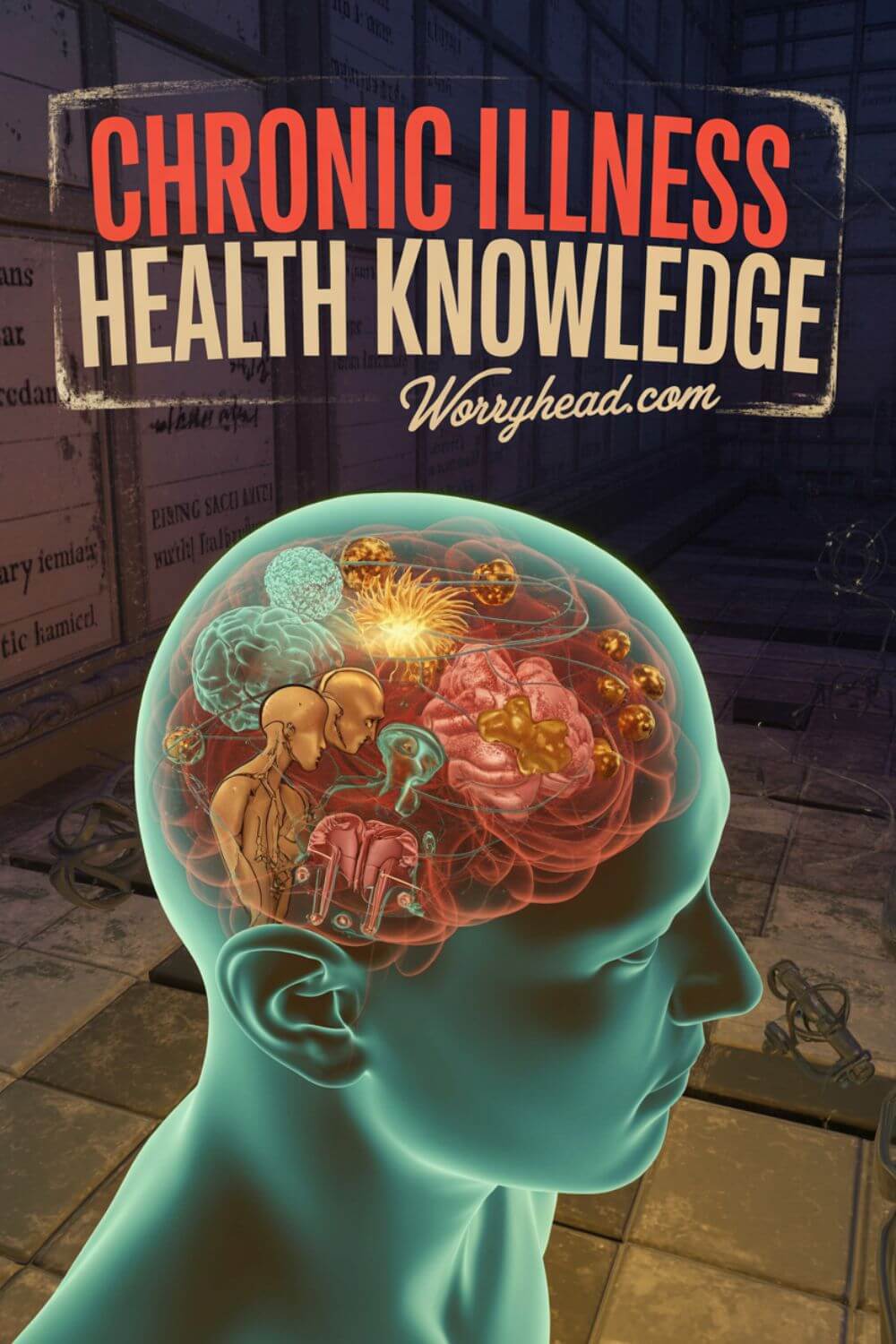
Why Chronic Health Knowledge Changes Everything?
I used to think love alone would be enough. That if I just stayed loyal, stayed present, and stayed strong, things would work themselves out.
But love without understanding? Love without chronic health knowledge for loved ones? It burns out. It gets buried under resentment, miscommunication, and heartbreak.
The day my wife collapsed in the bathroom, not from pain but from exhaustion and panic, I realized I needed more than love. I needed understanding. I needed to know what was actually happening inside her, physically, mentally, emotionally, because if I didn’t, I couldn’t truly support her. And if I couldn’t support her, how could we survive this?
Chronic illness is relentless. It doesn’t take days off. It doesn’t care about birthdays, holidays, or dreams. It tests everything: your routines, your finances, your identity, your relationship. And unless you understand what you’re up against, it will break you both.
That’s when I doubled down on learning. I didn’t just read articles about chronic health problems, I studied patient experiences. I dove deep into forums, read medical journals, and listened to every podcast I could find. Not because I wanted to be a doctor, but because I wanted to be her safe place.
Her translator when doctors didn’t listen. Her advocate when systems failed or when her voice was too shaky.
I began to understand how chronic illness affects family relationships and the individual. How grief shows up, not just when someone dies, but when life changes in ways no one prepared for. I saw how mental health and chronic illness were not separate battles, but the same war fought on different fronts.
And as I grew in knowledge, something else changed: our life.
We stopped reacting and started planning. We built routines around her flare-ups instead of trying to fight them. We adjusted work, travel, diet, and sleep, all based on chronic health management that fit her, not society’s expectations.
We stopped blaming each other for what we didn’t understand. And in that space, compassion bloomed.
Understanding why chronic disease is important to public health gave me clarity; it’s not just her. It’s millions of people. And their loved ones. Suffering in silence, being misunderstood, left behind by workplaces, dismissed by friends, and shamed by doctors who think it’s all in their head.
And I knew I couldn’t let that continue – not in our home.
So I made our home her sanctuary. I made our life bend around her healing, not forcing her to bend until she broke.
And I want that for you, too—not perfection, not a pain-free life, but a better one. A life where your love is informed. Where your presence has power. Where your support feels like safety, not pressure.
Because when you understand chronic illness deeply, you love differently.
And that changes everything.
Now let’s go even deeper and look at how this knowledge plays out in everyday life, from your emotional resilience to the way you design your routines, and how you hold space for the hard days without losing yourself in the process.
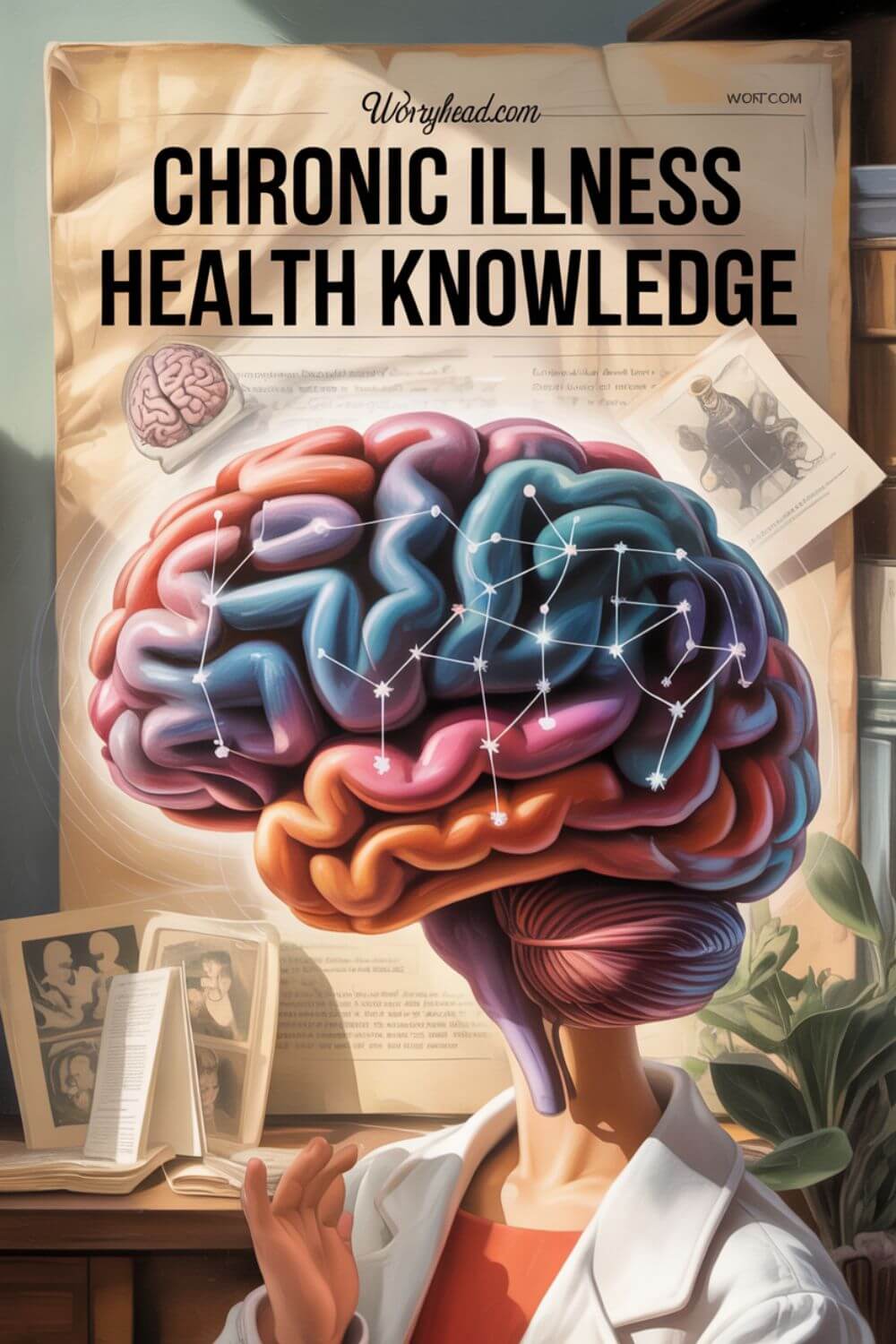
Learn to Hold Space Without Fixing Everything
One of the hardest things I had to learn as a man, and as a husband, was to stop trying to fix everything. When the person you love is suffering, every part of you screams, “Make it better.” But with chronic illness, there is no quick fix. No magic solution.
At first, I’d offer suggestions. “Try this diet,” “Get more rest,” “Maybe a walk will help.” I meant well, but she didn’t need advice. She needed safety. A soft place to land. Someone who could simply be there, without pressure, without expectations. So I learned to sit with her in silence, to hold her when words failed, to witness her pain without rushing to erase it.
That act alone, holding space, is the most healing thing I’ve ever done.
Design a Life Around Chronic Illness, Not Against It
Once I stopped fighting reality and started adapting to it, everything changed. We created a rhythm that worked for her body, her needs, and our life. Mornings are slow. We plan around her flares, not through them. Appointments are spaced with recovery in mind.
Our home office was designed to feel calm, cozy, and functional, not just for productivity, but for healing. We even took breaks during the day for breathwork, tea, or a simple cuddle. This wasn’t about doing less. It was about doing what mattered differently.
When you build life with chronic illness instead of against it, peace replaces chaos.
Let Go of Who She Was and Love Who She Is Now
This one broke me, and healed me at the same time.
I missed the old her. The vibrant, spontaneous, energetic woman who could dance all night and travel without fear. But holding on to that version of her, desperately wishing for her to return, only created distance between us.
One day, she looked at me and said, “I’m not who I used to be… but I’m still me.” And I realized she wasn’t asking me to fix her. She was asking me to see her as she is today.
So I let go of the fantasy. And I fell in love with this version of her, too. The one who fights silent battles daily. The one who cries in the morning but still gets up. The one who loves me with everything she has, even when she feels empty.
That kind of love… It’s rare. And it’s real.
Prioritize Self-Care Without Guilt
Supporting someone through chronic illness is draining. You give so much. Emotionally, physically, and mentally. But I had to learn this the hard way: If I didn’t take care of myself, I’d have nothing left to give her.
At first, I felt guilty for needing time alone. When I went for a walk or worked on my blog while she rested. But then I realized that my energy is her safety net. If I burn out, we both fall.
Now, self-care isn’t selfish. It’s sacred. It’s part of our survival plan. I take time to breathe, write, and reflect. Because when I’m okay, I can help her be okay too.
Become an Advocate, Not Just a Caregiver
It took me time to step into this role, but once I did, everything changed. I wasn’t just her husband. I became her voice when she was dismissed by doctors. Her researcher when the diagnosis didn’t make sense. Her defender when people questioned her reality.
I read, I asked, I challenged. I educated myself on chronic health conditions, defined as those that are lifelong, invisible, and often misunderstood. I learned about how chronic illness affects mental health, work, and relationships. And I didn’t just use that knowledge, I shared it.
Because silence protects the system that keeps people like her unheard.
Knowledge, spoken out loud, changes lives.
Let’s keep going because in the next part, I want to bring you even closer into the emotional world of caregiving and chronic illness, and how we can stay resilient, loving, and grounded even when everything feels like it’s falling apart.
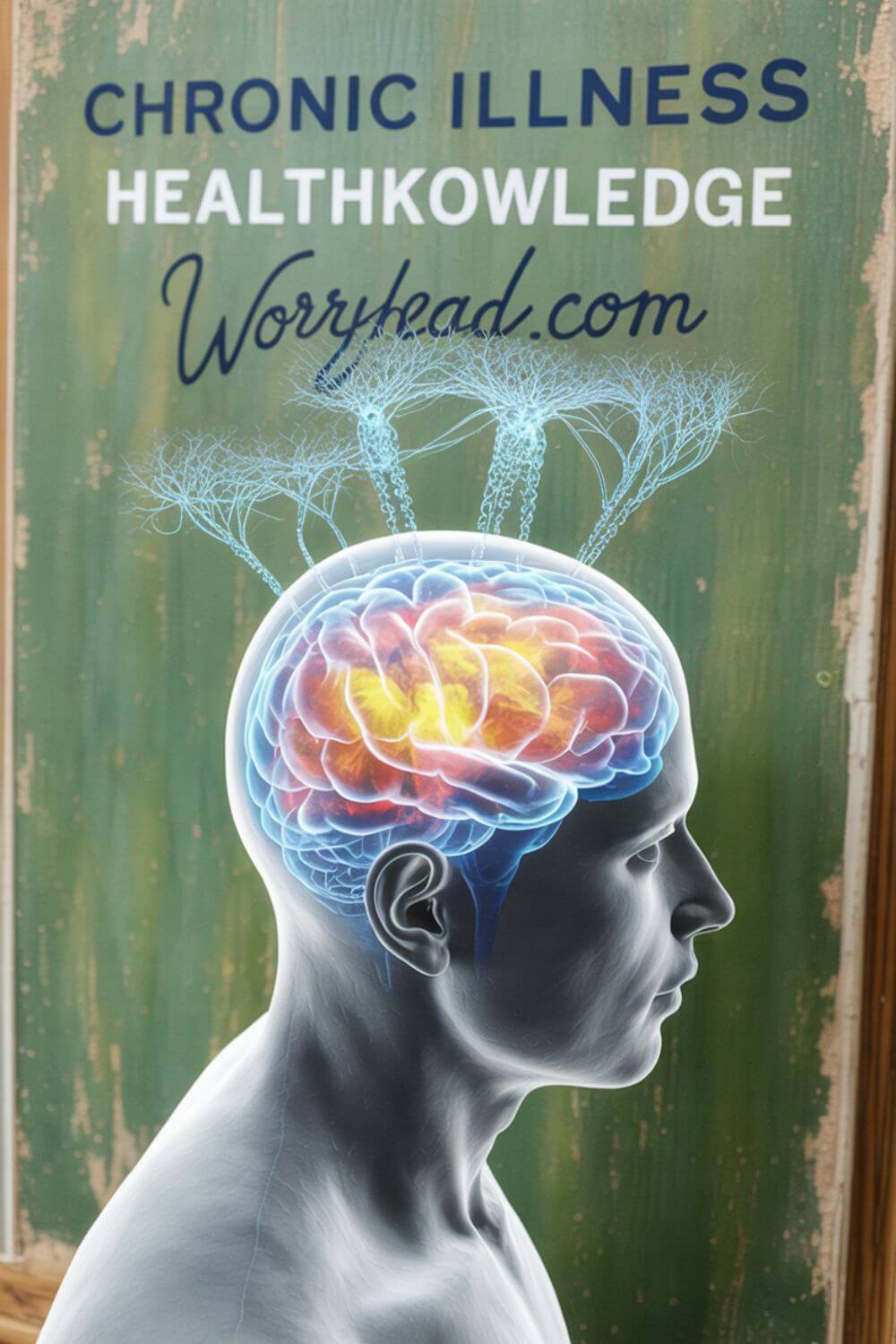
Health Knowledge for Loved Ones Looks Like in Real Life
It’s one thing to understand chronic illness. It’s another thing to live it every single day—and to love someone through the waves that never stop coming. What I’ve learned is that chronic health knowledge for loved ones is not just about facts. It’s about how we respond.
It’s how we love, how we adjust, or how we show up, even when we’re tired too.
There are days when I’ve had to cancel things last-minute because my wife had a panic attack before we were meant to leave. There are nights when I’ve slept on the floor next to her because the pain was too much for her to lie in bed. There have been weeks when I was running our home, supporting her through a flare, managing her emotions, cooking, cleaning, blogging—and no one saw it.
But I knew I wasn’t just her partner. I was her advocate. Her safe place.
Chronic health knowledge became how I moved through life.
It’s in how we designed our home office, so she could work when she felt well enough and rest without guilt when she couldn’t. It’s in the decision to let go of traditional work and build a blogging business, so I could always be nearby. So she never had to struggle alone at work again. So I could give her the one thing she lost – freedom.
And it’s in how I learned to manage my emotions, too.
There were times I felt invisible. Times I wanted to scream from the frustration, from the grief of the life we thought we’d have. But chronic health knowledge taught me to recognize my own triggers, to seek support when I needed it, to process instead of suppress.
Being strong for someone else doesn’t mean being silent.
It means showing up with truth, with compassion, with boundaries, and with love.
So if you’re here, reading this, wondering if what you do every day counts, let me tell you, it does.
Your presence matters. Your learning matters. Your willingness to understand, even when it’s hard, even when it hurts, that’s what transforms survival into living.
And I’m proud of you for being here.
Next, let’s break down the emotional layers that caregivers carry the hidden grief, the quiet strength, and how we can stay grounded in our love while not losing ourselves in the process.
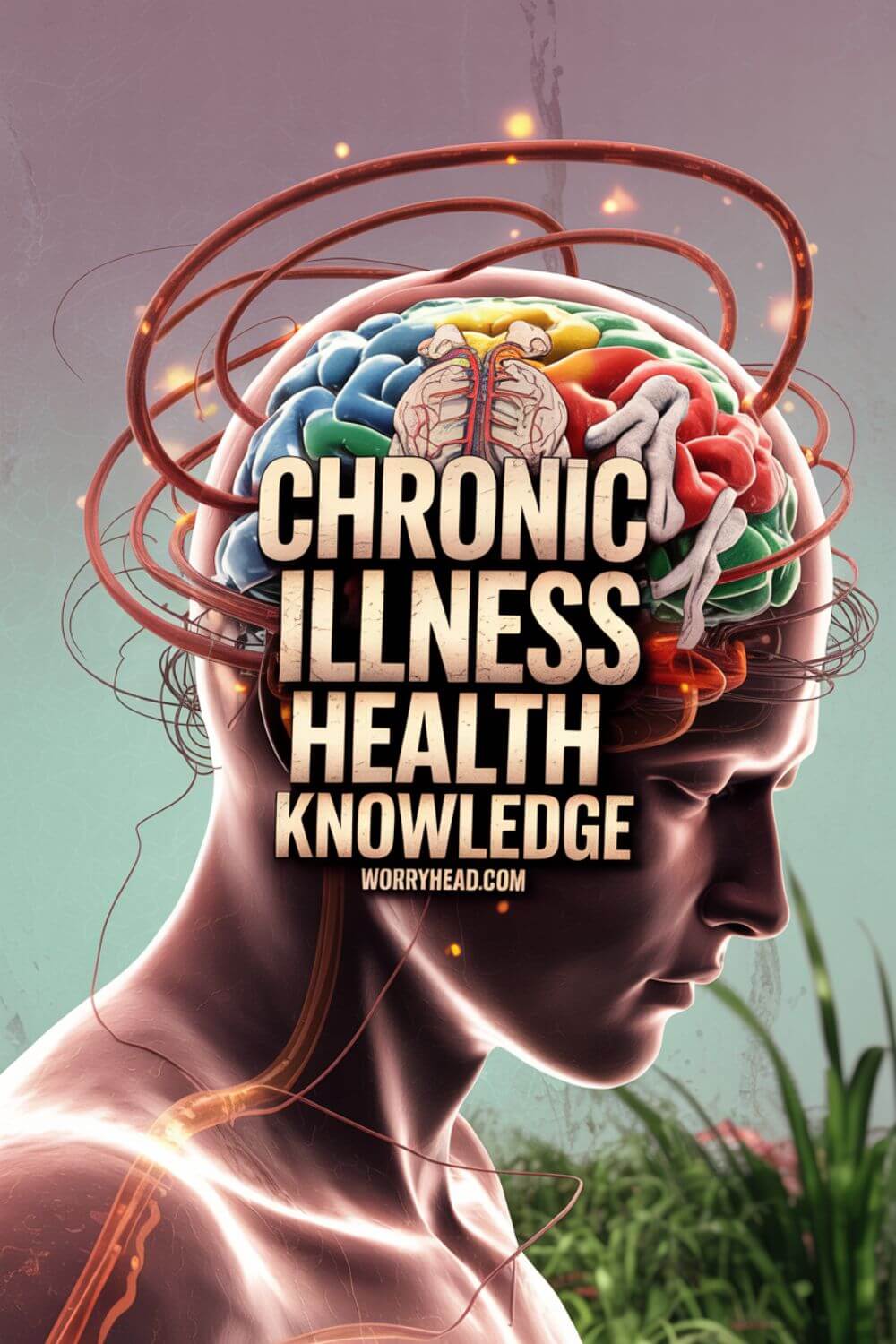
The Grief No One Talks About
There’s a kind of grief that never gets acknowledged — the grief of watching the person you love fade into someone they no longer recognize. Not because they’ve stopped loving you, but because chronic illness has changed them.
I grieved the version of my wife who could travel freely, dance without pain, and plan a future without hesitation. And while she’s still here, still full of heart and courage, there’s a part of her that illness has taken, and grieving that doesn’t mean I love her any less. It means I love her deeply enough to feel the loss with her.
No one tells caregivers that we grieve, too. But we do. Quietly. Constantly. And knowing that doesn’t make us weak. It makes us human.
Carrying Her Pain in My Body
Over time, I started to feel her pain—not physically, but emotionally. When she cried silently in bed, I cried in the other room. When she was too anxious to speak, my chest felt tight for hours. When she canceled yet another plan, I saw the guilt in her eyes and carried it on my shoulders like it was mine.
Empathy like that can break you if you don’t learn how to carry it properly.
So I began journaling. Meditating. Giving my body permission to feel without shame. Not to push away her pain, but to stop drowning in it. Because I can’t be her anchor if I’m sinking, too.
When You’re the Only One Who Sees It All
To the outside world, she looks “fine.” She smiles, laughs, and posts photos. But no one sees the pain behind her eyes, the hours she spent resting before leaving the house, the breakdown she had after coming home.
But I see it.
I see the nights she whispers, “I can’t do this anymore.”
I see her flinch from pain even as she smiles through it.
And sometimes, it feels unbearably lonely to be the only one who truly knows what she endures. But it also makes our bond unbreakable. Because in a world that doesn’t always believe her, I always will.
Fight Resentment with Radical Compassion
There have been moments—quiet, shameful moments—when I felt resentful. Resentful that we couldn’t do normal things. That our plans had to revolve around illness. That sometimes I felt more like a caregiver than a husband.
But I learned that resentment isn’t a sign I love her less. It’s a sign I need space. I need to acknowledge my needs. And when I do that, with honesty and care, I show up with compassion instead of bitterness.
Because love can survive hard things. But only when we name them.
Choose Love Every Single Day
Every morning, I make a choice:
- To love her through the mess.
- To believe her, even when the world doesn’t.
- To support her, even when I’m tired.
- To see her, not just the illness.
That choice is quiet. No one gives you a medal for it. But it’s the most powerful act of love I know.
And some days, when she looks at me with tears in her eyes and says, “Thank you for not leaving…”
I realize I never had to stay. I wanted to.
Because real love isn’t proven when things are easy. It’s revealed when everything is hard.
Now, let’s go even deeper. In the next section, I’ll break down the tangible, everyday ways this knowledge has transformed our life—from building our home together to growing our online income—and how we’ve made peace with a life we never planned for but now cherish.
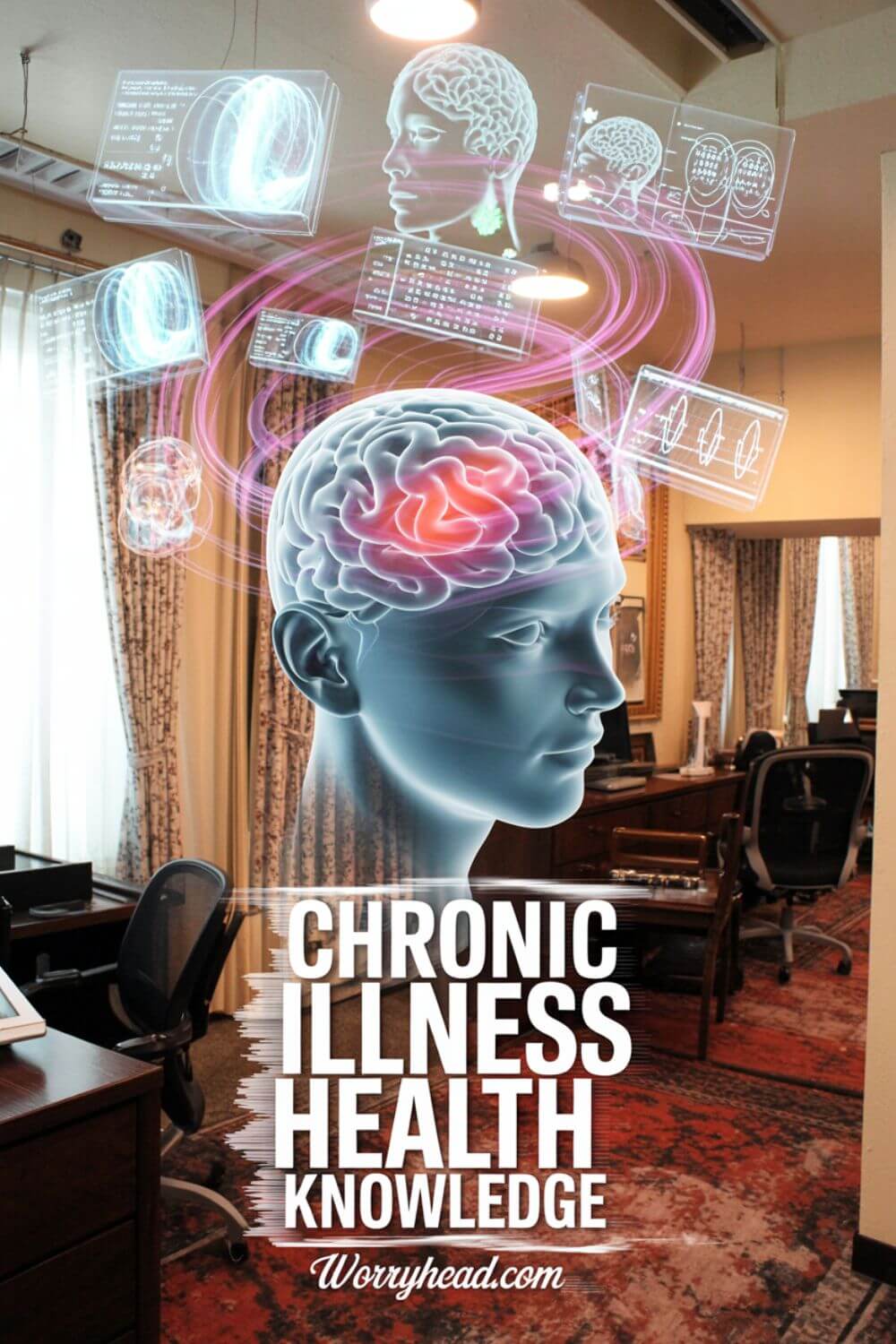
Create a Home That Heals, Not Just Shelters
Our home used to feel like a trap. Four walls where pain echoed through every room. But once I understood how much the environment impacts chronic illness, everything changed.
I redesigned our space with intention, not for aesthetics, but for healing. Soft lighting for her sensory overload. Plants for peace (inspired by my mum back in Poland). Ergonomic furniture so she could work when she felt well, and rest nearby when she didn’t. We created zones for rest, movement, and comfort because when your body is in survival mode, your home should feel like a hug.
Now, every corner of our space is designed around her needs, not societal standards. That alone has reduced her stress more than any medication.
Turn Pain Into Purpose Through Blogging
Blogging wasn’t just a business for me. It became a lifeline.
When she was at her lowest after her first suicide attempt, I started writing to cope. It was a quiet outlet. A way to connect with others who understood. But then it grew into something more. It gave me purpose. It gave me a way to build a future where she didn’t have to suffer just to survive.
I made money. I made meaning. And I created something she could be proud of.
Now, I’m home when she needs me. We travel on our terms. She has the freedom to focus on healing, not pushing herself to meet deadlines for someone who doesn’t even believe her pain is real. And I get to provide, not just financially, but emotionally, spiritually, practically.
All through a blog that started with a broken heart.
Create a Financial Safety Net Without Burnout
I won’t pretend money fixes everything. But financial freedom does lift a huge weight off your chest when someone you love is chronically ill.
Doctor visits, medications, supplements, therapies, they add up. But with blogging, we can breathe. We no longer have to choose between getting help and paying the bills. We can say yes to better care, better food, better rest—because the income supports that choice.
And I didn’t need to hustle 24/7 or exploit our story. I just had to share it, honestly, and offer value. That’s what people connect with.
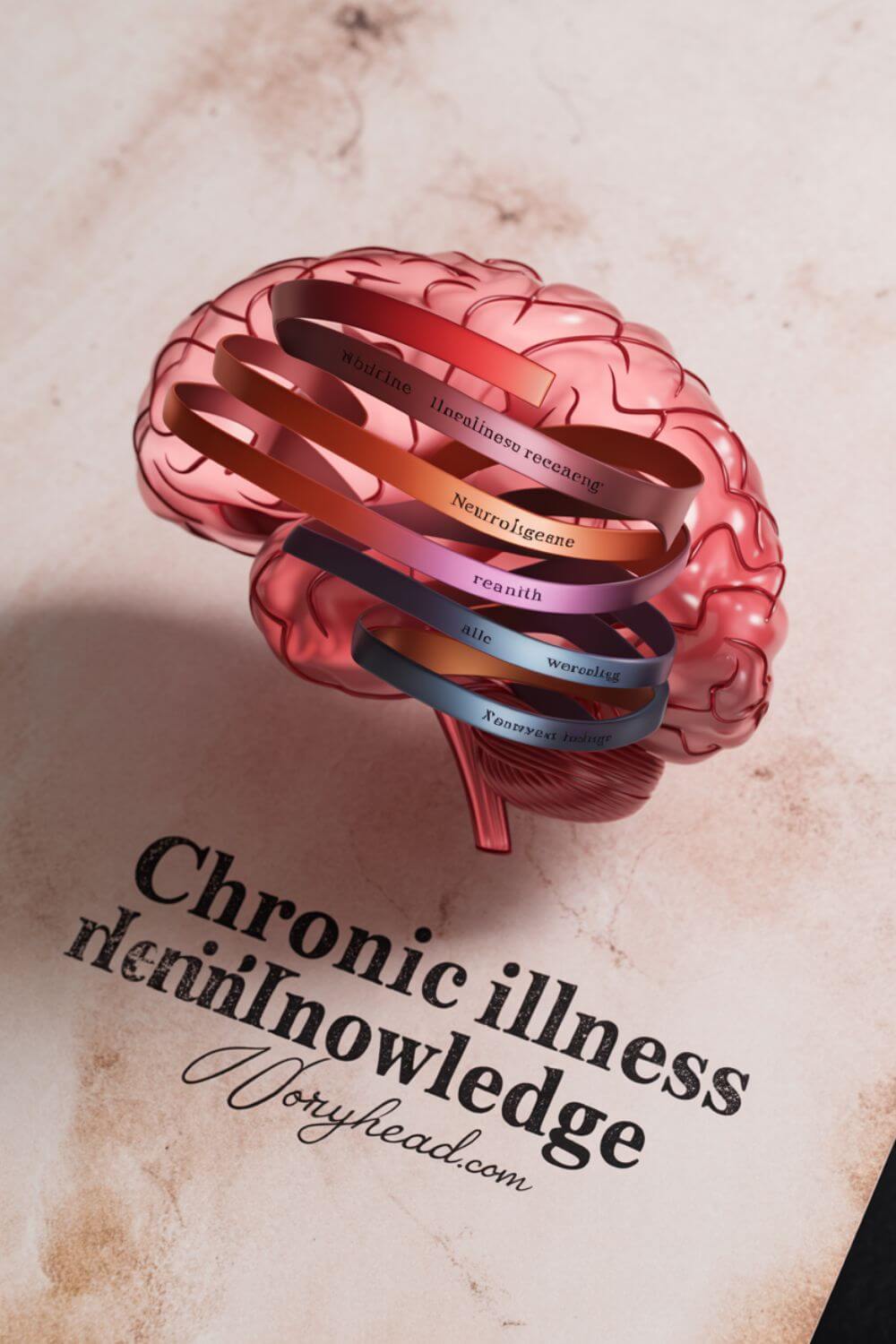
Build a Routine Around Real Life (Not Instagram)
Our life doesn’t look like a highlight reel. It looks like medication alarms, naps at 2 p.m., tears on random Tuesdays, and pacing when the pain gets too loud.
So we stopped trying to live up to anyone else’s rhythm.
We wake up slowly. We eat when she’s able. I write during her quiet moments and pause when she needs me. We don’t follow the clock; we follow her health.
That’s not laziness. That’s wisdom.
When your routines respect your body, life becomes gentler. More forgiving. And chronic illness becomes something you live with, not something that dictates every breath.
Say “No” to Guilt and “Yes” to Joy
Guilt used to follow us everywhere. Guilt for canceling plans. Guilt for resting. Guilt for not being “productive.” But chronic health knowledge taught me this:
Rest isn’t lazy. Saying no isn’t rude. And protecting your peace is survival, not selfishness.
Now, we laugh without shame. We rest without apology. We say yes to small joys and no to energy vampires.
Because this life is ours—and we’re finally living it on our terms.
Travel Together Again Without Fear
Chronic illness stole travel from us for years. Airports triggered panic. Long drives led to flares. And we were scared, scared of being far from home, from her doctors, from what was familiar.
But now, with flexible income and a deeper understanding of her needs, we prepare instead of panic.
We pick gentle destinations. We bring all the essentials. We know her limits, and we honor them.
Italy, her dream, became our reality. And seeing her barefoot on the Amalfi Coast, pain-free for just that moment… that’s the kind of joy no money can buy.
We got a piece of our life back. And we’re never letting it go.
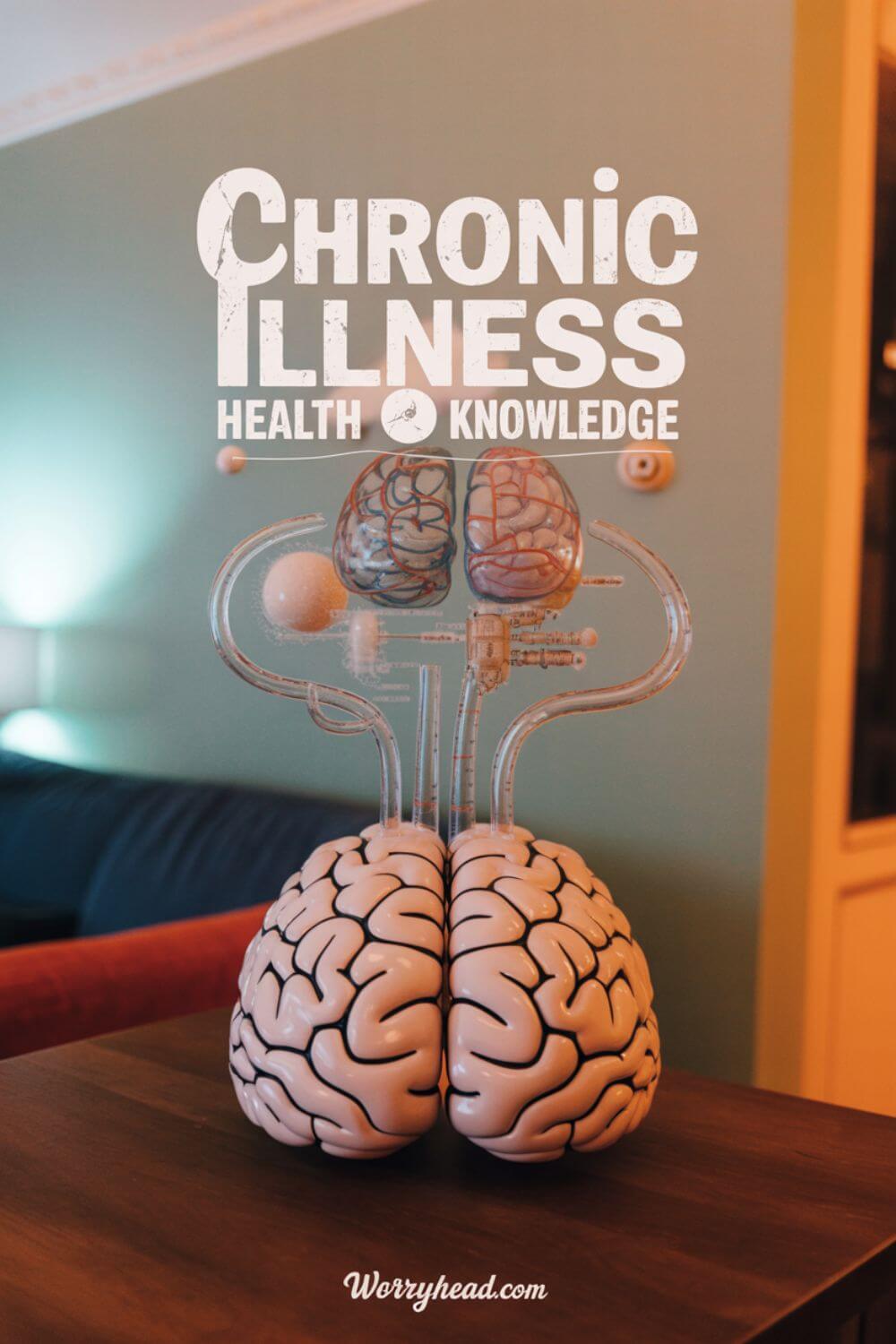
Final Word on Chronic Health Knowledge for Loved Ones
Chronic health knowledge for loved ones isn’t something you read once and master. It’s something you live. Something you grow into, day after day, heartbreak after heartbreak, love after love.
I didn’t ask for this path. I didn’t imagine a future where my wife would be in pain almost every day of her life, battling endometriosis, fibromyalgia, anxiety, OCD, depression… and the darkness that once almost swallowed her whole.
But I chose this path.
I chose her.
And with that choice came responsibility—not just to love her, but to understand her illness, to study it, to respect it, and to shape a life around it that didn’t just feel like survival… but something beautiful. Something whole.
When you’re a healthy partner to someone who is chronically ill, the world doesn’t always see you. But you’re there. Behind the scenes. Carrying the bags. Cancelling the plans. Smiling when your heart is tired. And if you’re anything like me, you’re holding so much that no one ever claps for.
But let me say this now:
What you do matters.
- Your love matters.
- Your presence changes everything.
- Your understanding becomes the difference between someone giving up… and someone choosing to stay.
I started writing during one of the darkest chapters of our lives. After her suicide attempt. After months of feeling like I was losing her and myself. I blogged because I had to. It was either that or fall apart completely.
And somewhere in between the words, I found something bigger.
I found purpose. I found a connection. I found a way to provide for us, to build a life where she didn’t have to keep proving her pain just to earn a paycheck.
Blogging gave us freedom. Not perfection. Not an escape. But freedom.
To be together. To breathe. To heal. To dream again.
I’m still learning. Still adjusting. Still holding space on the hard days. But I wouldn’t trade this life for anything. Because loving her, fully, deeply, with knowledge, has made me a better man. A better human.
And if you’re reading this, wondering if you’re strong enough for the journey… You are.
Because the strongest thing you can do is stay. Learn. Love anyway.
And if you need someone who understands? I’m here. That’s what this space is for.
We’re not meant to carry this alone.
If there’s one thing I hope you take away from this, it’s this: Chronic illness may change everything, but with the right understanding, love can still thrive, and life can still be beautiful.
Leave a comment below if this touched you, and if you’d like to go even deeper, you can download a FREE chapter of my eBook to support your journey of loving and understanding someone with chronic illness.


About Me
Hi, I’m Lucjan! The reason why I decided to create this blog was my beautiful wife, who experienced a lot of pain in life, but also the lack of information about endometriosis and fibromyalgia for men…
